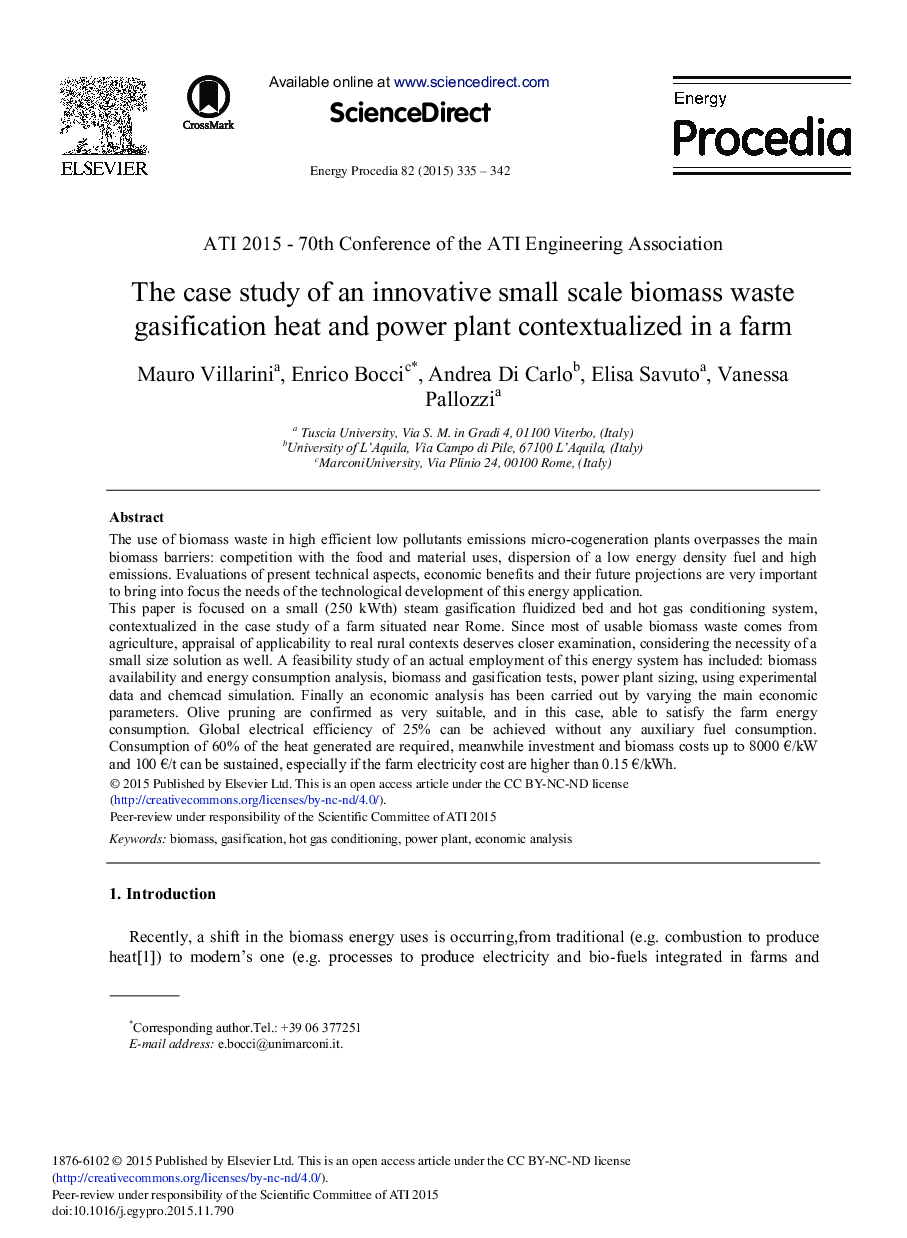| Article ID | Journal | Published Year | Pages | File Type |
|---|---|---|---|---|
| 1509077 | Energy Procedia | 2015 | 8 Pages |
The use of biomass waste in high efficient low pollutants emissions micro-cogeneration plants overpasses the main biomass barriers: competition with the food and material uses, dispersion of a low energy density fuel and high emissions. Evaluations of present technical aspects, economic benefits and their future projections are very important to bring into focus the needs of the technological development of this energy application.This paper is focused on a small (250 kWth) steam gasification fluidized bed and hot gas conditioning system, contextualized in the case study of a farm situated near Rome. Since most of usable biomass waste comes from agriculture, appraisal of applicability to real rural contexts deserves closer examination, considering the necessity of a small size solution as well. A feasibility study of an actual employment of this energy system has included: biomass availability and energy consumption analysis, biomass and gasification tests, power plant sizing, using experimental data and chemcad simulation. Finally an economic analysis has been carried out by varying the main economic parameters. Olive pruning are confirmed as very suitable, and in this case, able to satisfy the farm energy consumption. Global electrical efficiency of 25% can be achieved without any auxiliary fuel consumption. Consumption of 60% of the heat generated are required, meanwhile investment and biomass costs up to 8000 €/kW and 100 €/t can be sustained, especially if the farm electricity cost are higher than 0.15 €/kWh.
